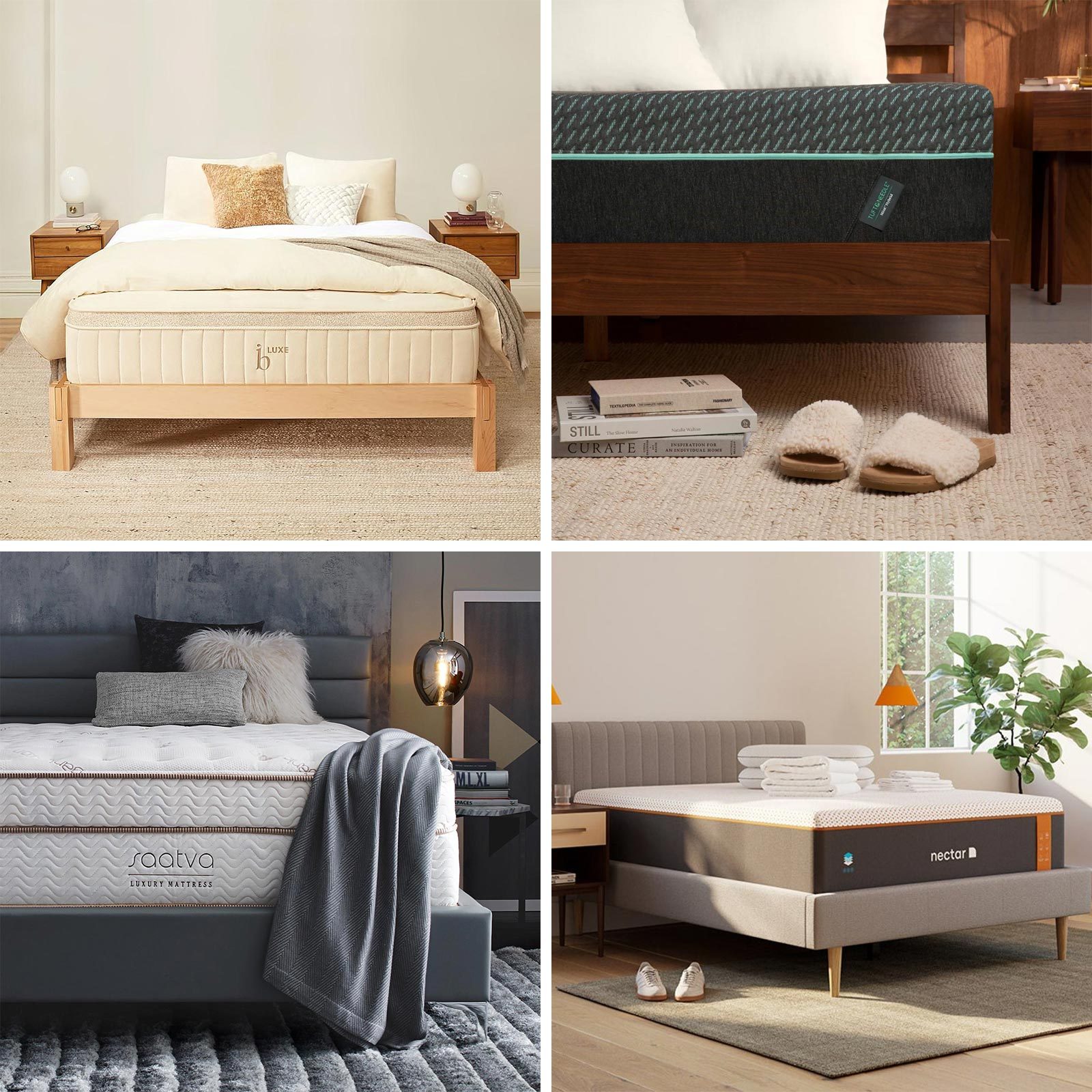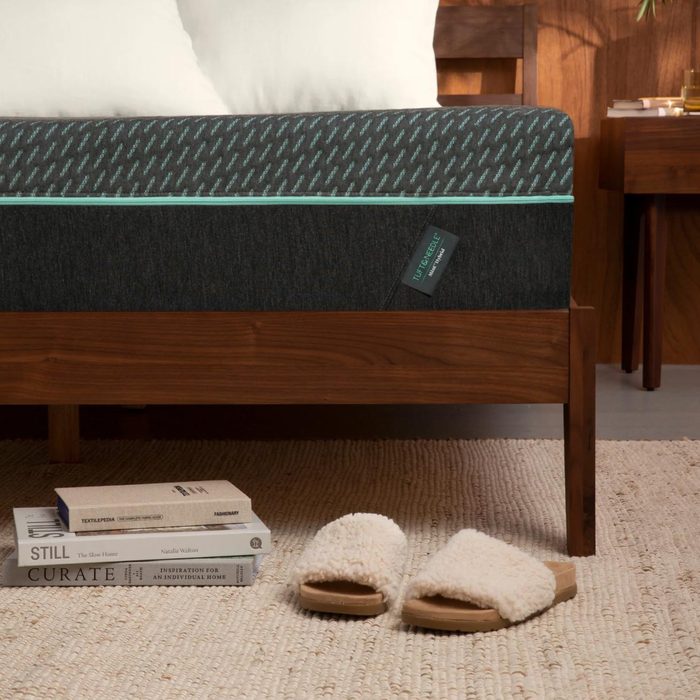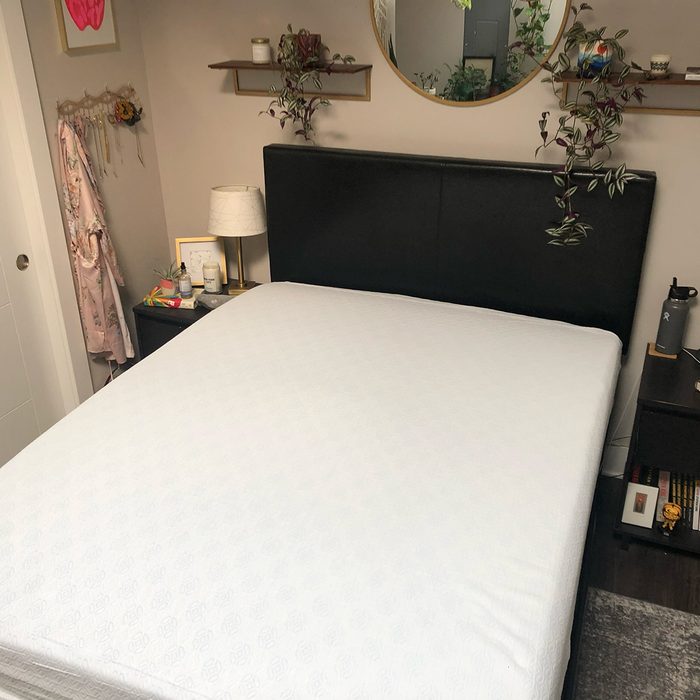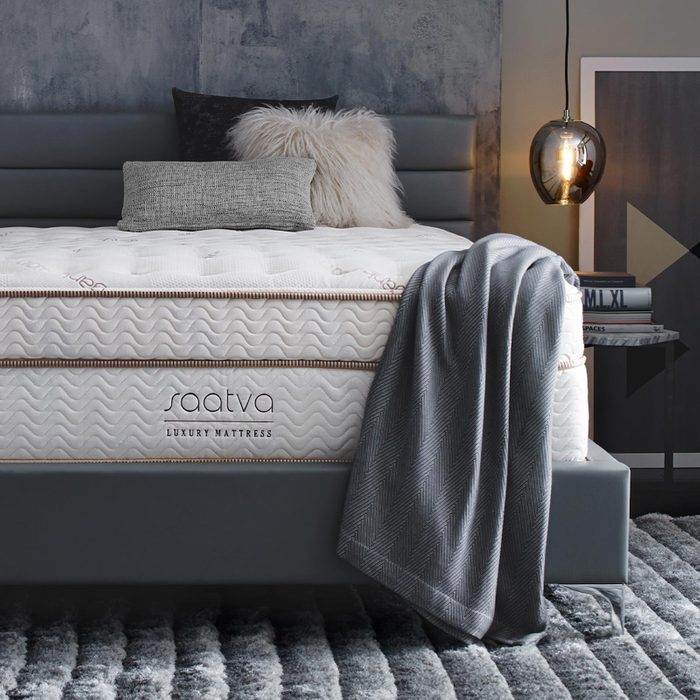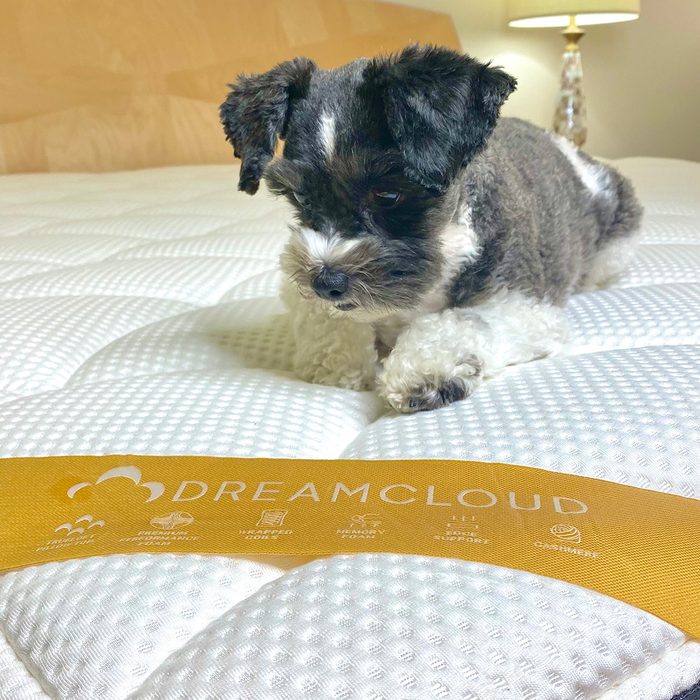NANCY SNYDE FOR RD.COM
NANCY SNYDE FOR READER'S DIGEST
Made from high-quality materias, including cooling copper, this mattress was designed to keep your spine aligned and keep you cool throughout the night.
Pros:
-
Available in memory foam and hybrid options that support side sleepers
-
Made with triple-action cooling technology
-
Available in twin to split California king sizes
-
365-night home trial
Cons:
-
Some buyers note issues with delivery
This is Greenwald’s choice for side sleepers, and it’s easy to see why: The medium-firmness mattress has five layers of cushy foam to cradle you and relieve pressure. Available in memory foam and hybrid options, this is also Nectar’s coolest mattress—literally. It’s made with copper fibers and sleep textile technology to keep even the hottest sleepers cool as a cucumber.
After our Deputy Shopping Editor Reina Galhea tested the Nectar Premier for a year, she wrote in her mattress review, “My husband and I revel on a daily basis about how comfortable this mattress is. It’s in an entirely different league than our old spring mattress, and we’ll never go back.”
What to consider when buying the best mattress
Because it’s such an important purchase—not to mention a big investment—buying a mattress can be intimidating. Should you choose a boxed, twin, nontoxic, cooling, queen, king, memory foam, organic or even a hybrid mattress? The complicated decision is why many of us keep our mattresses past their prime, even though experts recommend replacing them after six or seven years.
So, how do you choose the most efficient sleep setup? “A mattress has two distinct functions: support and comfort,” explains Michael Breus, PhD, aka The Sleep Doctor. “It’s all about keeping your spine in alignment, and when you find one that provides the right support for you and is comfortable for you, you have found the best mattress for you.”
“You have to look at sleep as a performance activity,” says Breus. “A runner can run a race in flip flops, but without the right equipment, their performance will certainly suffer. It’s the same for sleep. If you have the best sleep products, you will sleep better, and a mattress is the centerpiece of your sleeping equipment.”
Greenwald agrees. “The best mattress will depend on your age, weight, the position you sleep in and whether you have spinal or joint issues. It’s a very personal choice,” he shares.
Types of mattresses
While no mattress is perfect for everyone, specific constructions generally work better for certain types of sleepers.
- Foam mattresses include memory foam and are softer, making them a smart choice for side sleepers. They provide support and relieve pressure in potential problem areas, like hips and shoulders, and often feel plush enough even without mattress toppers. They’re also good at motion isolation, so you won’t feel it whenever your partner twists or turns.
- Innerspring (or coil) mattresses are more traditional and provide firmer support for heavier sleepers and those who sleep on their back.
- Hybrid mattresses combine foam and innerspring technology to maximize comfort, support and heat dissipation. According to Greenwald, side and stomach sleepers will find hybrids superior due to decreased joint pressure.
Want more? Consider these highly reviewed mattresses on Amazon, too.
Why you should trust us
Lois Alter Mark, the author of this piece, is an award-winning travel, lifestyle and shopping writer with more than three decades of experience. She has contributed to publications such as Reader’s Digest, Forbes, USA Today and Entertainment Weekly. While writing this piece, Mark sought the expertise of Michael Breus, PhD, clinical psychologist and board-certified sleep specialist of The Sleep Doctor and David Greenwald, MD, FACS, neurosurgeon and co-founder of Comprehensive MD.
Nina Derwin is a commerce updates editor for Reader’s Digest, Taste of Home and Family Handyman. She has experience researching and reviewing various items to help shoppers find the best products on the market. She researched and updated this piece.
How we found the best mattress
Getting good quality sleep is essential to overall health and can greatly impact our moods and energy levels throughout the day. To find the best mattresses, we searched for models that provide comfort and support in equal measure and sought options that cater to various sleeping positions. We factored in important criteria like options for firmness, range of sizes and types of materials like memory foam and coils. We considered various customer reviews and then considered additional factors like price, warranty and risk-free sleep trials. Overall, we found that investing in a good quality mattress is worthwhile and makes all the difference in helping you achieve restful sleep.
FAQ
How do you clean a mattress?
When it comes to cleaning a mattress, soap and water doesn’t cut it. In fact, you should skip water altogether to avoid mold. Instead, use a vacuum and stain removers as part of your regular maintenance routine. In between cleanings, invest in a solid mattress protector.
When is the best time to buy a mattress?
According to our guide on when to buy a mattress, the best time is early spring or during a major holiday, like Memorial Day or Black Friday, to reap the best mattress deals. Try a mattress topper for comfort on an old model in between purchases.
How often should you replace your mattress?
A good rule of thumb is to order a replacement every six to ten years. When you’re ready to move on, recycle the mattress and re-evaluate your sleeping needs to find the best fit.
What does a mattress warranty cover?
Warranties vary from company to company, so check the specific website for details. In general, warranties usually cover manufacturing defects or premature sagging. They don’t typically cover normal wear and tear or comfort issues, though most companies have sleep trials to test before you commit.

















